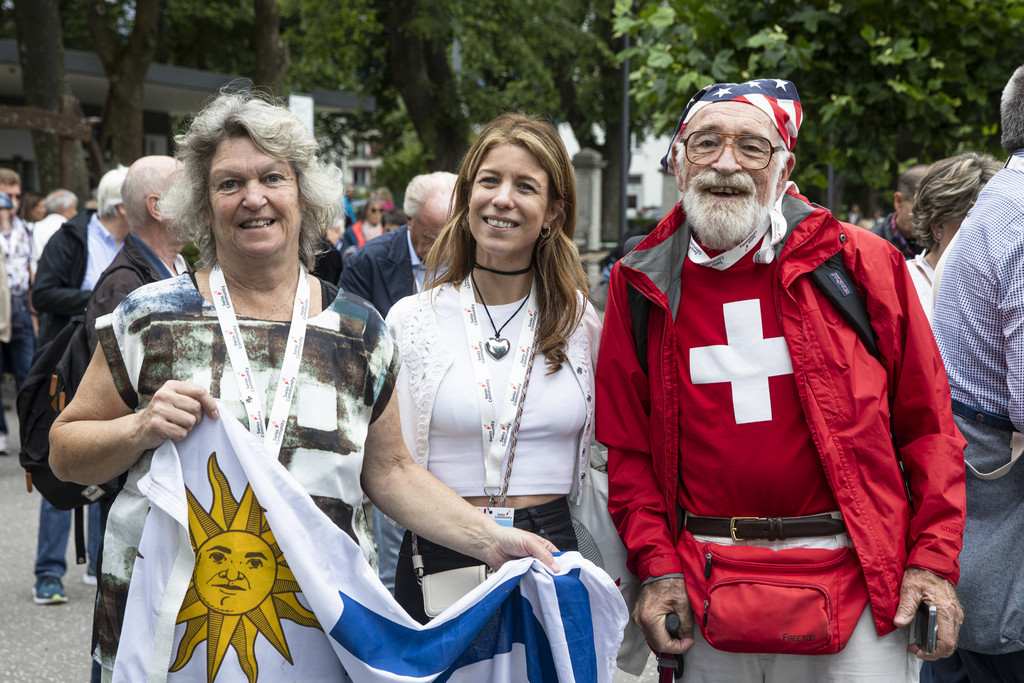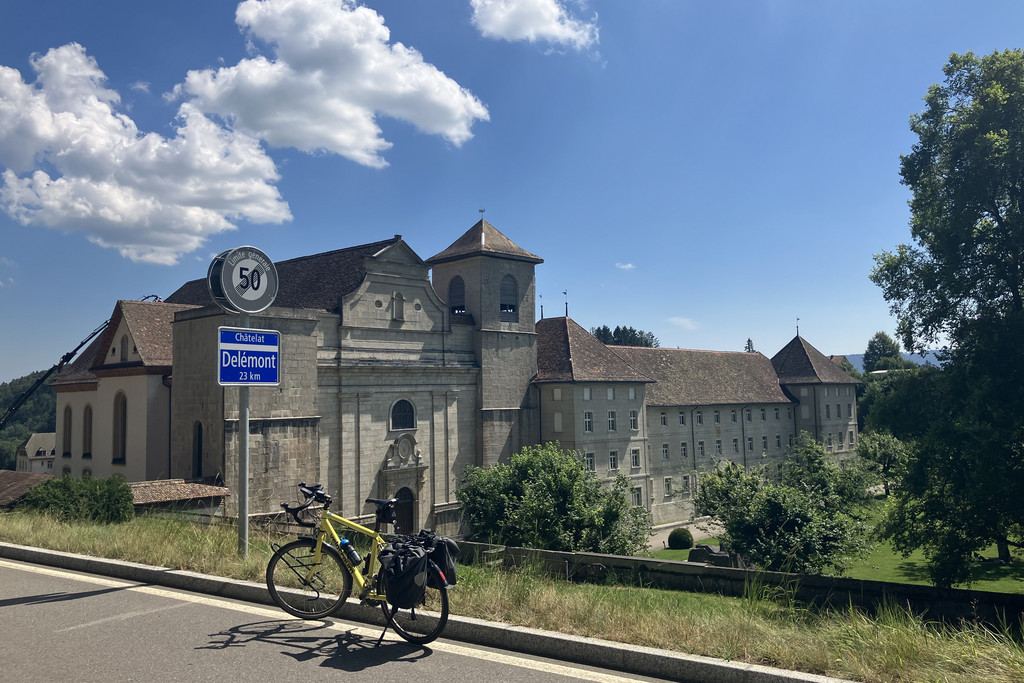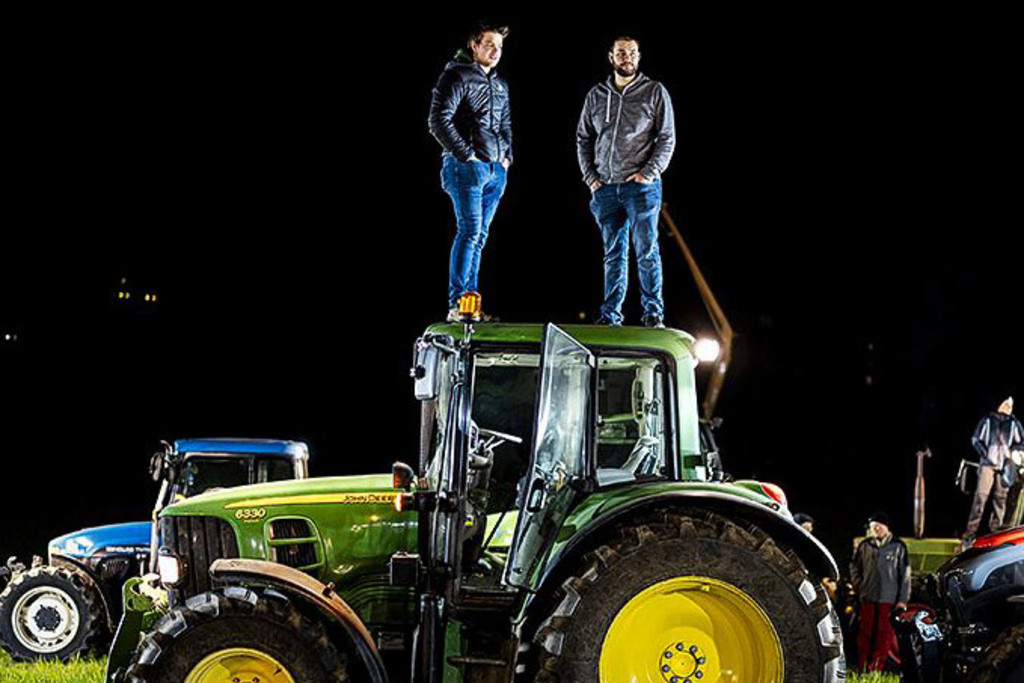Contract children: Reparation does not make the scars disappear
I am glad at last to read how some children were treated in Switzerland. It is a disgrace we did this to 1980. I have a family history like this. My mother married in 1930 and had three children, two boys and a girl. She became a widow early in the 1940s. Because she was a widow the state or federal authorities took all her three children away. She was not allowed to see them. I only saw my oldest half-brother from the distance once. I was 15 before I saw my half-sister for the first time. My other brother once he was 20, being now of age, came to us and told our mother how he was used by this farmer and as a child he was given this cider which was alcoholic. He later became an alcoholic. I am glad I left Switzerland in 1970.
Marie Saladin-Davies, Emu Plains NSW, Australia
My father was a “Verdingkind” and I remember how pleased he was. So much so that he took us often as children to the farmer family where he grew up. Personally I find it ridiculous to waste so much money on settlements and scientific research. Back then things were very different. For many children of impoverished parents, like my father, it was the first time that these children had three decent meals a day, a bed to sleep in and a roof over the head and could attend school regularly. Of course in the spoiled times we live in today, where the biggest problem is not food on the table but if the cellphone battery is fully charged, people have no clue what it meant to live in Switzerland during two world wars.
Othmar Vohringer, British Columbia, Canada
I also spent several years as a contract child in Emmental and Rossemaison (JU) and in Merishausen (SH) instead of at home. That didn’t cost my parents anything. I think that was the main reason. Those were tough times at the beginning of the second school year in Hasle-Rüegsau. Preparing hay or grass at 4 o’clock in the morning, cleaning out the stables, then rösti for breakfast on the shared plate. Afterwards a long way to school towards Sumiswald. Field work at noon, potato germination for the pigs, stable work in the evening – and then off to a shared bed in the evening. At Christmas we got two Swiss francs and two days off. The farmer family’s own children never had to work and played every day. That was difficult! I am unable to forget or process this period. I prefer not to think about many details. I don’t even have the strength to register as damaged.
Markus Lüttin, Spain
It is all well and good that the federal government is working on the issue, but now it is primarily recognition and payment that should be promoted. Many of those affected are old and ill and would like to receive the payment during their lifetime. It didn’t take very long for the foster care placements either. This often happened very quickly and without wasting time. If you consider that the authorities have ruined a child’s entire life, it is only a drop in the ocean.
Peter Mattle, Philippines
From the article: “Hans Jörg Rüeggsegger, president of the major farmers’ association in Bern, recently responded to Gäggeler’s claim, saying that he did not know of any farms that felt stigmatised because of the past”. Perhaps if the names of the farms that benefited from what effectively was slave labour were made known, the farmers and the “major farmers’ association” would not be so light-hearted about this sickening history.
Walter Lienhard, USA
Reservations against increasing urban density in Switzerland
I have not lived in Switzerland since 1974. I see through this article, it is having the same density issues as here in the US. It is troubling, and heart breaking to see that what was a country rich in greenery, bucolic countryside and beauty is now in danger, and that not being able to develop on such land outside the city limits to create urban sprawl is “a problem”. It should not be a “problem” but should be mandatory that the powers that be and urban developers try to protect what makes Switzerland so special. Urban density is a world issue that will eventually, if not arrested, take over and affect quality of life. It is happening everywhere. I can only hope that money does not become the deciding factor over the beauty and character of the cities and outlying areas, and Switzerland can wisely move forward with “green” and density housing without destroying what is dear to not only its citizens but visitors as well.
Michele Engel, USA

![[Translate to English:]](/fileadmin/_processed_/4/6/csm_Spenden_Chang-Duong_Unsplash_a44ae9f16e.jpg)









Comments
Comments :
Erstmals war ich unmöglich langsam, besonders bei den Mahlzeiten - meine ewigen Tagträumereien, bewährten sich auch auf dem Schulweg, beim Kommissionen machen, beim täglichen aufstehen etc., etc.
Ihre Weisheit sprach sich auch aus, statt mir alle Schande zu erklären wenn ich vielleicht ein besonderes Geschirr brach, und sie nichts sagte bis ich fragen musste was sie denn eigentlich denke. Ihre Antwort: "Dir etwas sagen würde das Geschirr nicht flicken."
Als sie per Zufall lernte, dass es viel einfacher war, mich mit meiner lieblings-Musik am morgen zu wecken als mich ewig zu rufen. Wenn ich jemals eine Dummheit trieb, warf sie keine Fluchsnamen gegen mich. Das schlimmste was ich je hörte war "Du bisch jitz es Tüpfi!"
Natürlich waren da auch dunkle Seiten! Ich war ein sehr gestörtes und unruhiges Kind. Niemand ist perfekt; wir machen alle Fehler. Auch diese habe ich in Errinnerung. Dennoch, ich kann mich glücklich nennen, dass ich nun in meinen langen Jahren, während ich vielmals mit Jugendlichen arbeitete, nicht halb so schreckliche Erfahrungen gedulden musste wie es mir etwa bei andren Kinder seither beschrieben wurde.